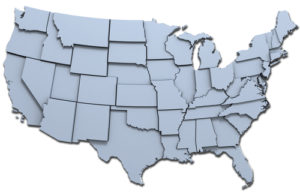Assessing the Impact of the Coronavirus on Your Business and Staff

Impact of Coronavirus on your Business
In a press conference on March 11, the World Health Organization (WHO) Director-General Tedros Adhanom Ghebreyesus announced that the outbreak of the coronavirus (COVID-19) can be characterized as an official pandemic, with the risk of further global spread. As the WHO and the Centers for Disease Control and Prevention (CDC) continue to monitor the international situation, businesses should also take proactive steps to keep their people and operations safe.
As you start to feel the impact of the coronavirus consider the following:
Provide Guidance to Employees
- Communicate with your staff regularly and openly. Notify them of updates and policies in place that support flexible work arrangements, describe how they should deal with travel plans and outline what they should do if they or a family member are affected.
- Ensure appropriate health checks or quarantine processes are implemented and check whether your company’s policies align with guidance from the WHO and federal government.
- Support employees who express concerns, actively share crisis communication plans or tools to address discrimination in the workplace and firm preventative protocols.
Ask yourself:
- Where are my employees? Are they safe?
- Do we have remote employees in affected regions?
- Do we have the necessary remote working infrastructure, policies and mechanisms to keep our staff safe?
Share Best Practices with Employees
Encourage employees to take common-sense precautions to prevent the spread of all infectious diseases, including common illnesses like colds and flu:
- Advise employees to stay home when they are sick.
- Notify employees who have returned from a trip in an infected area they should work from home for 14 days.
- Those who have a fever at work should go home immediately and stay there for at least 24 hours, and should only return to work if they no longer have a fever without the use of fever-reducing medicine.
- Promote hand hygiene through education and availability of soap, hand sanitizers and tissues.
- Advise employees to avoid touching their face, particularly eyes, nose and mouth.
- Encourage proper cough etiquette—cough or sneeze into a tissue, sleeve or arm. Don’t use their hands.
- Remind staff to perform routine surface cleaning, particularly for high-touch surfaces.
- Avoid attending or hosting large gatherings. This is where cold, flu and other respiratory viruses are often spread.
- The Public Health Department has a webpage dedicated to novel coronavirus in English, Chinese, Spanish and Vietnamese at www.sccphd.org/coronavirus. Monitor the developing situation and keep your employees up to speed with any additional public health recommendations.
Cyber Risk and Online Scams
- According to the WHO, cyber criminals are disguising themselves as WHO, federal, state and local agencies to steal money or sensitive information. If you’re contacted by a person who appears to be from WHO or other government agencies involved in infectious disease control, verify their authenticity.
- Check file extensions of downloaded files and don’t click on suspicious links.
- If you see a scam, report it to the WHO immediately, here.
Ask yourself:
- What new avenues of attack may this pandemic create at my company?
- Are we getting our information from a legitimate, fact checked source?
- Do we have secure remote access for our employees to work from home?
Disruption to Supply Chain and Financial Projections
- Evaluate your understanding of the breadth and depth of your supply chain including the location of all first, second and third-tier suppliers. If you haven’t already done so, reach out to understand their plans, any issues they have identified and offer assistance, as appropriate.
- Prepare to implement supply chain disruption plans. Reach out to potential alternate suppliers to understand their capability to meet your needs and the amount of time they would need to react. If you don’t have an interruption plan or alternate suppliers identified, this situation presents an opportunity to create an action team to build out your supply chain risk management plan for both this and future unexpected events.
- Ensure your business continuity plans are current and address critical areas, such as contingency plans for communicating with employees and suppliers, alternative methods for transportation of both raw materials and finished goods, and ensuring access to business resources for employees who may be required to work remotely.
Ask yourself:
- What impact does recent events have on demand for our products, and are we ready to respond in real-time?
- If we have declining sales, or declining margins, how do we manage working capital?
- What sources of funding do we have access to in order to bridge and prevent declining infrastructure?
- With debt, are we prepared to drive a proactive message to lenders during a time of change?
It’s important not to overreact or panic and stay committed to taking appropriate precautions that work best for your company. Closely monitor the latest information regularly from reputable sites, such as www.who.int, www.cdc.gov and www.hhs.gov. Having a plan in place will ensure you are proactively addressing concerns from both shareholders and staff. Seek expert advice, if you need help navigating these challenges.
To Contact GROCO click Here
How Californians Can Protect Their Home From Crime & Reduce Their Home Insurance Costs
How Californians Can Protect Their Home From Crime & Reduce Their Home Insurance Costs By. Cassandra June From theft, burglary, arson and vandalism, the types of property crime homeowners need to protect their homes from is a worrying list of felonies. 2016 saw property crime in California creep above 1 million instances; a scary and shocking statistic…
Apple Gives in to UK Demands, Agrees to Pay Huge Tax Bill
Apple Gives in to UK Demands, Agrees to Pay Huge Tax Bill The ongoing battle between Apple and the UK over unpaid taxes appears to finally be coming to a head. The tech giant announced recently that it has agreed to pay the UK £137 million ($185 million) in extra taxes. Part of the payment…
Best and Worst Tax States for Businesses
Best and Worst Tax States for Businesses Where is the best place to call home? That all depends on the criteria you’re using to judge. So what if you’re looking to start a business or move your business and you want to find a tax-friendly location for your business? It turns out that where you…
Will New Tax Plan Hurt California Home Owners?
Will New Tax Plan Hurt California Home Owners? While it still remains to be seen if the new tax proposal from House republicans ever gets through the Senate and reaches the president, many taxpayers are still concerned about the consequences. One of the largest groups in this category is homeowners in California, not to mention…




